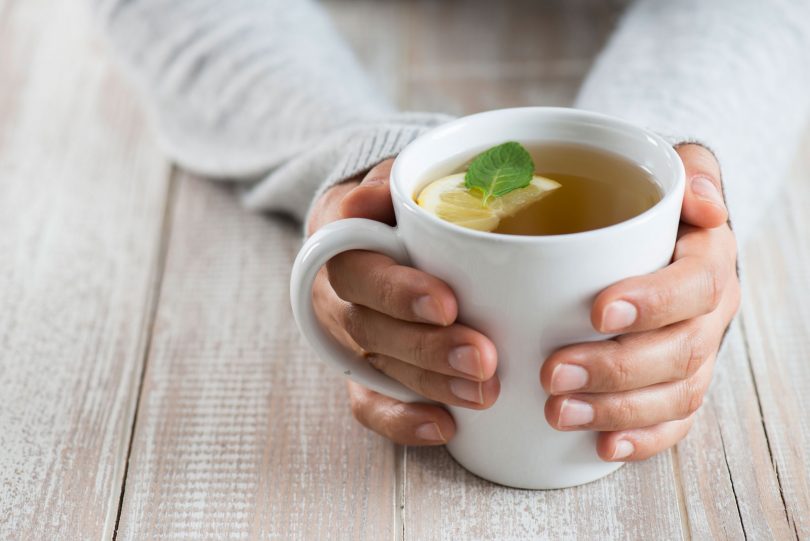Dry January has even spawned additional monikers such as Sober September and No Alcohol November.
It was with wonder that I perused all the holiday event offerings in my community during the month of December. Within the same week, I could have attended a Santa beer crawl, a wine and paint night, a charity event at a brewery and a work party with a prominently featured “open bar.”
During the holidays, it’s nearly impossible to be social and not have a cocktail. In fact, a Yahoo survey puts Christmas as the second-most popular day to imbibe. New Year’s Eve is the first.
It’s no wonder, then, that come January 1, many feel as if they owe their liver a break.
For this reason, more and more people are participating in what has become known as “Dry January.”
Not unlike what it sounds, Dry January is when you give up alcohol for the month and give your body a hiatus from the extra cocktails, beer and wine you likely drank more of during the crazy few weeks between Thanksgiving and New Year’s Day.
The concept of giving up alcohol for a month at the start of the new year isn’t new. In 1942, Finland instigated a program called Raitis tammikuu (Sober January) to help aid the war effort against the Soviet Union. But it wasn’t until 2013 that the phenomenon gained traction. Alcohol Concern — a charity based in the United Kingdom — created a Dry January campaign to raise awareness about the harmful effects of alcohol abuse. The campaign was soon endorsed by government health officials and from there, the month-long detox continued to pick up steam and even spawned additional monikers, such as “Sober September” and “No Alcohol November.”
Why do it?
Some see Dry January as a way to “reset” for the new year or “cleanse” their body of toxins, while others take the month to consider their relationship with alcohol and whether or not they want to change their habits.
Emily White, 39, of Portland, Ore., participated in Dry January last year after her social drinking began making her feel sluggish. She suspected a habit might be forming, so she took a month off. It wasn’t easy.
She found herself feeling anxious about attending social situations where she would normally order a drink. She even ordered a mocktail once at a conference because it wouldn’t stand out as much as water or tea.
“The first two weeks were tough, but by week three, I had surrendered to my commitment and saw the light at the end of the tunnel,” White recalls. “It was worth it on so many levels.”
Many who participate in Dry January report noticing tangible results. White says she noticed clearer skin as well as increased energy and better sleep. “At the end of the month, I recognized that I thought more clearly, was more productive and … frankly, was proud of myself,” she says.
Though few studies exist on the benefits of short-term sobriety, experts in the field of addiction agree that average drinkers — those who consume 1-2 drinks per day — could see positive results from taking a post-holiday break.
“For a person who merely wants to re-examine their relationship with alcohol, there could be some usefulness to taking a break from drinking,” according to the Substance Abuse and Mental Health Services Administration (SAMHSA). “This could give time to reflect upon their life with a sober mind and fully functioning faculties.”
Khara Randall, a counselor in Brunswick, Maine, who specializes in addictions, says she agrees: “If a person is not addicted, then it can be a great time for self-reflection and better understanding of why they may be concerned about their drinking.”
Your health could improve
One of the few studies that does exist was carried out in the U.K. in 2013. Rajiv Jalan, a liver specialist at University College London, found that 10 staff members of a magazine who gave up booze for a month showed significant health improvements compared to four colleagues who did not abstain, with an average 15-percent drop in liver fat among the positive results. Abstainers also experienced a drop in blood-glucose levels, lower cholesterol and weight loss compared to those who didn’t quit for the month.
For problem drinkers, however, Dry January might not be the best solution. And that’s a fair number of the population. Nearly 30 percent of people ages 18 or older reported that they engaged in binge drinking in the past month, while 15.1 million adults ages 18 and older have admitted to having an alcohol-use disorder of some type, according to the most recent data from the National Institutes of Health.
Dr. Nancy Reau, the section chief of hepatology at Rush University Medical Center in Chicago, said taking a month off of drinking is not a “magical way of erasing bad behavior.”
Though she doesn’t disagree that taking a month off from drinking could make one feel better — “taking breaks are important,” she says — Reau emphasizes that people shouldn’t expect life-changing results.
“It’s like saying one month of exercise will reset your body even when you return to your sedentary lifestyle,” she says. “You could go without drinking for a month and you might feel like a bit of a different person, but it’s not going to result in any lasting beneficial changes.
“I think the number one message, more than temporary sobriety, is that you need to drink alcohol responsibly.”


